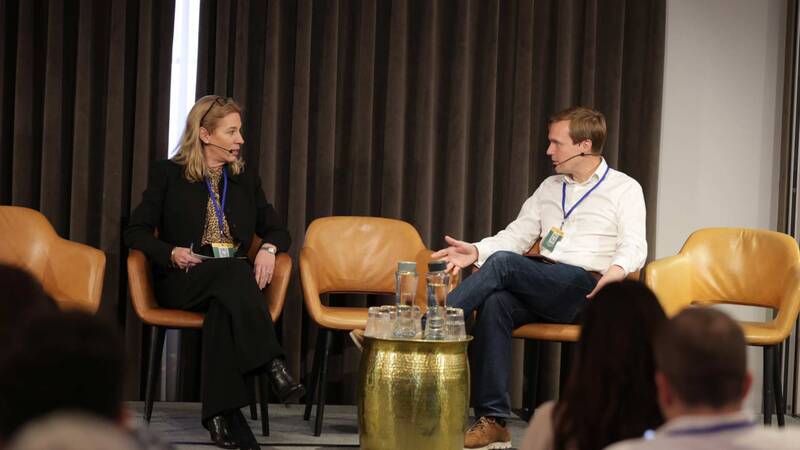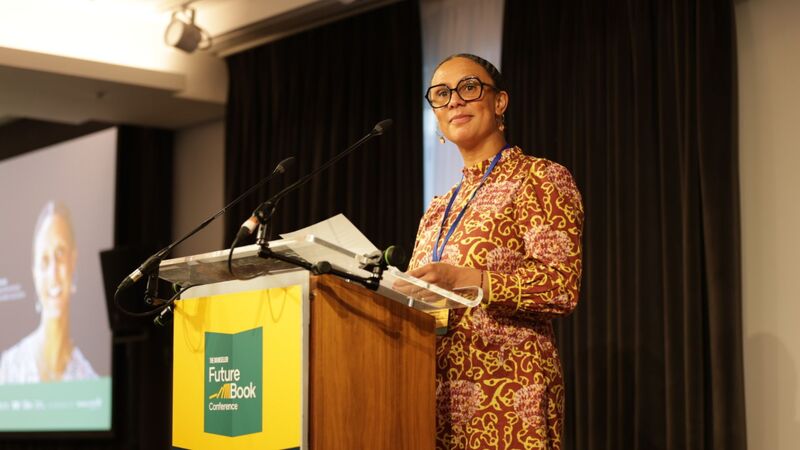You are viewing your 1 free article this month. Login to read more articles.
Rugby site closure swings PRH pay gap
Penguin Random House UK’s overall gender pay gap has swung in favour of men, with women now earning 3% less than men working at the company, on the median calculation. The development follows the closure of the publisher's Rugby distribution site.
Last year PRH was the only major house to report a median gender pay gap in favour of women, at -1.6%. However the latest report, which takes data from April 2018, shows a median gender pay gap of 3%. The mean equivalent has slightly reduced from 11.3% (in favour of men) in 2017 to 9.3%.
The 4.6% median swing is due to “the closure of one our distribution sites and a reduction in the number of males colleagues in the lower pay quartile,” PRH said in the report. The site in Rugby, which consisted of 253 jobs, was earmarked for closure by PRH in 2015 with phased redundancies from May 2017.
PRH said the "the shape of our organisation", taking into account 1,700 employees, is the main reason for the gender pay gap, with "more men in more senior and higher paid roles in comparison to our overall gender split."
HR director Val Garside added factors including a lack of men in entry-level roles, particularly in publishing divisions, which are 78% female, contributed to the gap, as well as fewer women in functions such as technology. The tech department includes around 200 people and is 74% male, and commands salaries "significantly higher compared to other roles specific to the publishing sector".
However, breaking down PRH’s two employing entities shows that Random House Group now has a negative median gender pay gap of -1.7%, compared to 13.9% in 2017. The mean gap has fallen from 16.4% in 2017 to 7.6%. Meanwhile at Penguin Books Ltd and DK the gap has slightly widened and swung in the other direction. The median gender pay gap is 9.6% compared to -7.8% last year (previously reported as -9.5% due to a technical error in DK’s reporting). The mean is now at 22.6% compared to 6.7% in the previous year (amended from 6.1% due to the same error). Both entities’ numbers are included here for technical reporting reasons, although DK operates as a separate company.
In regards to bonus pay, the closure of the Rugby site has also affected this significantly, while flipping the bonus gap itself from a median of -24.4% to 16.4%. The change was attributed to “changes in our distribution operation… where colleagues received a lower fixed profit share bonus reflecting market practice in these roles”. PRH said that despite the swing “we are pleased that our 2018 figure is closer to a zero pay gap by 8%”.
The report added: "Our mean bonus gap has grown slightly, to 35.5% [from 33%] in 2018. Our gap here reflects that the level of bonus paid increases with seniority, and the fact that we have a higher number of men in the upper quartile compared to the overall gender split of the organisation."
PRH said if flexible working was taken into account the gender bonus gap would reduce to 12.1% (median) and 33% (mean) because part-time workers have a pro-rated bonus opportunity.
The disproportionate number of men in the top pay bracket, compared to its overall mix of 60.4% women throughout the organisation, is reflected in the quartile analysis, largely unchanged from last year's report. Women dominate the highest pay bracket with 53.6% in the upper quartile, up from last year’s figure of 50%. Women account for 65.6% of the upper middle quartile, 70.2% of the lower middle quartile and make up 51.6% of the lowest pay bracket.
Recruitment during the reporting period, the year up to 5th April 2019, showed that out of 22 senior hires (for director or head of) 19 were female. Female m.d.s run five of PRH's nine publishing houses (down from six last year), and women also head up three other divisions.
Commenting on the figures, Garside said: “We are proud of the balanced gender representation we have in our leadership team and female leaders in our Technology, Legal & Contracts and Facilities teams. We’re also proud of the progression of the impressive female talent already within our organisation into senior roles.
“But as well as continuing to focus on the progression of women in our organisation, we have work to do to attract more women into historically male dominated and higher paid sectors like tchnology.
“We also recognise the need to focus on how we attract more men to publishing, especially in our entry-level and mid-level roles if we are to achieve a truly gender balanced workforce in the future.”
Over the last year the company has worked towards a more balanced representation in the layer below senior leadership through installing a mentoring scheme, running leadership development programmes and unconscious bias training. It is also improving support for working mothers, exploring more flexible working options, and introducing pay banding following a job evaluation process, with bands for every role by the end this year. The job evaluation began last year and PRH hopes to reveal outcomes to employees this October.
Future objectives include the Penguin Parents Programme involving a review of maternity support, progression for maternity leavers, promotion of learning and development training and gender neutral language in job adverts. There will also be a particular focus this year on recruiting more people in the technology industry to work in publishing “with a particular focus on women in tech”.
The Bookseller also understands that PRH is recruiting for a head of resourcing, a newly created role, following a review of the HR team, which it hopes will lead on much of this work. It is hoped the candidate will showcase publishing as an viable industry to anyone with the appropriate talents and skills, competing with employees such as Google, and bolster the content in its careers website and social channels.
The figures in the report are based on amounts paid via payroll in April 2018 – therefore before work on any of its focus areas, identified in the 2017 report, had started, whilst bonus data refers to the pay period from 6th April 2017 to 5th April 2018. It is understood that PRH will report on the next gender pay gap this summer, taking in the year up to 5th April 2019, months ahead of deadline in April, to ensure more timely engagement on this issue.
All employers with more than 250 staff were required by law to report their gender pay gaps by 4th April, with nearly two-thirds of companies failing to disclose as of last week, according to the BBC. So far, Pearson, the British Library, Hachette, Springer Nature, Wiley, Elsevier and W H Smith have all disclosed theirs.
Hachette has called on publishers to be transparent about the effects of distribution staff figures on their gender pay gap reports.


















